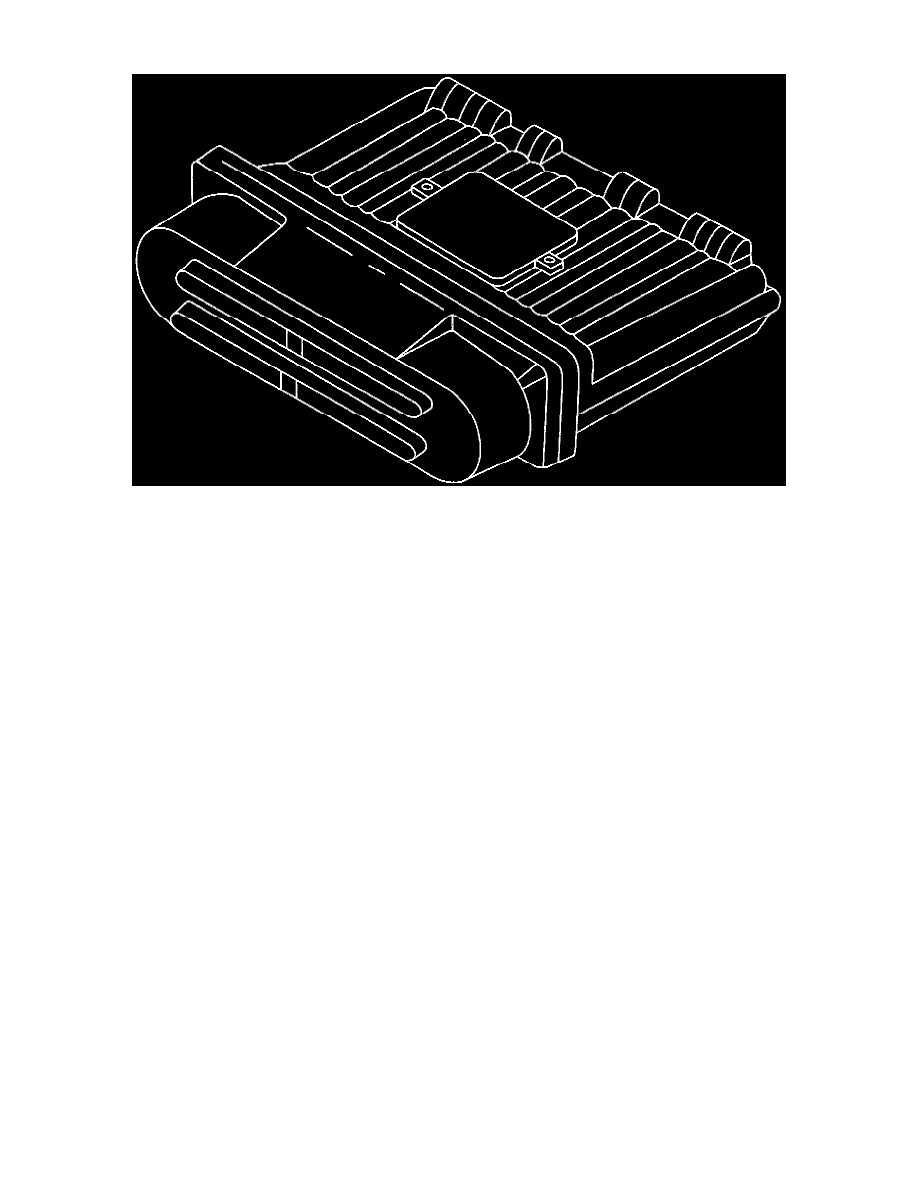Malibu V6-191 3.1L VIN M SFI (1997)

Engine Control Module: Description and Operation
Figure C1-1 - Powertrain Control Module (PCM)
Description
The Powertrain Control Module (PCM) is located underhood in front of the right strut tower near the engine coolant reservoir. It is the control center of
the fuel injection system and constantly looks at the information from various sensors and controls the systems that affect vehicle performance. It
controls the following items:
^
Fuel metering system.
^
Transaxle shifting.
^
Ignition timing.
^
On-board diagnostics for Powertrain functions.
It constantly looks at the information from various sensors, and controls the systems that affect vehicle performance. The PCM also performs the
diagnostic function of the system. It can recognize operational problems, alert the driver through the MIL (Service Engine Soon), and store diagnostic
trouble codes which identify the problem areas to aid the technician in making repairs. Refer to Introduction in Engine Controls for more information on
using the diagnostic function of the PCM.
For service, the PCM consists of two parts:
^
The controller (the PCM without the Knock Sensor module).
^
the Knock Sensor module.
PCM Function
The PCM supplies either 5 or 12 volts to power various sensors or switches. This is done through resistances in the PCM which are so high in value that
a test light will not light when connected to the circuit. In some cases, even an ordinary shop voltmeter will not give an accurate reading because its
resistance is too low. Therefore, a digital voltmeter with at least 10 megohms input impedance is required to ensure accurate voltage readings. Tool J
39200 meets this requirement.
EEPROM
The Electrically Erasable Programmable Read Only Memory (EEPROM) is a permanent memory that is physically soldered within the PCM. The
EEPROM contains program and calibration information that the PCM needs to control powertrain operation. Unlike the PROM used in certain past
applications, the EEPROM is not replaceable. If the PCM is replaced, the new PCM will need to be programmed Techline equipment (Tech-2)
containing the correct program and calibration for the vehicle is required to program the PCM.
Knock Sensor Module
